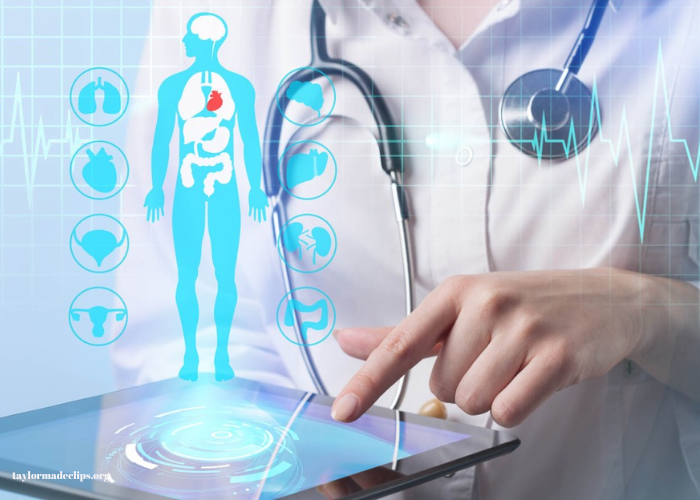The healthcare sector has always been at the forefront of innovation, constantly seeking ways to improve patient outcomes, streamline processes, and reduce costs. As we navigate the 21st century, the role of technology in healthcare has become increasingly pivotal. From artificial intelligence and robotics to telemedicine and wearable devices, technological advancements are revolutionizing how healthcare is delivered and experienced. These innovations are not only transforming clinical practices but are also paving the way for a healthier future.
The Rise of Telemedicine: Bridging Distances
Telemedicine is one of the most significant technological advancements in healthcare, fundamentally altering how medical consultations are conducted. By leveraging digital communication tools, telemedicine allows healthcare providers to deliver care remotely, thereby overcoming geographical barriers. This innovation has proven invaluable, particularly during the COVID-19 pandemic, when the need for social distancing made in-person visits challenging.
Telemedicine offers several benefits: it provides patients with access to specialists regardless of location, reduces travel time and associated costs, and increases the convenience of receiving medical care. Moreover, it enables continuous monitoring of chronic conditions through virtual check-ins, ensuring that patients remain on track with their treatment plans. The future of telemedicine is promising, with potential expansions into areas like remote surgery, where surgeons perform procedures using robotic tools from a different location.
Artificial Intelligence: The New Frontier in Diagnostics
Artificial Intelligence (AI) is another groundbreaking technology reshaping healthcare. AI algorithms can analyze vast amounts of data far more quickly and accurately than human practitioners, enabling earlier and more precise diagnoses. For instance, AI-powered tools are being used to detect diseases such as cancer in their early stages by analyzing medical images with a level of precision that surpasses human capabilities.
AI also plays a critical role in personalized medicine, where treatments are tailored to the individual characteristics of each patient. By analyzing genetic data, AI can help predict how a patient will respond to a specific treatment, allowing for more effective and customized care plans. Furthermore, AI is transforming drug discovery and development, accelerating the identification of potential therapeutic targets and reducing the time and cost associated with bringing new drugs to market.
Wearable Technology: Monitoring Health in Real-Time
Wearable technology is another area where innovation is driving significant changes in healthcare. Devices like fitness trackers, smartwatches, and biosensors are empowering individuals to take charge of their health by providing real-time data on various physiological parameters. These devices can monitor heart rate, blood pressure, glucose levels, and even detect irregularities that may indicate a health issue.
The data collected by wearable devices can be shared with healthcare providers, offering a continuous stream of information that aids in monitoring chronic conditions and preventing potential complications. For example, continuous glucose monitors (CGMs) help individuals with diabetes maintain optimal blood sugar levels by providing real-time feedback. In the future, wearable technology is expected to become even more sophisticated, with the potential to detect a wider range of health conditions and provide actionable insights to users and healthcare providers alike.
Robotics in Surgery: Precision and Efficiency
Robotic-assisted surgery is another technological innovation making waves in healthcare. These advanced systems allow surgeons to perform complex procedures with greater precision, flexibility, and control than traditional methods. Robotic systems are particularly beneficial in minimally invasive surgeries, where small incisions are required. They reduce the risk of complications, shorten recovery times, and improve patient outcomes.
The use of robotics in surgery is expanding beyond traditional applications, such as orthopedic and cardiac procedures, to more complex areas like neurosurgery. As robotic technology continues to advance, we can expect even more sophisticated systems that offer enhanced capabilities, such as real-time imaging, augmented reality guidance, and machine learning algorithms that provide decision support to surgeons during procedures.
Big Data and Analytics: Driving Evidence-Based Care
Big data and analytics are transforming healthcare by providing insights that drive evidence-based decision-making. Healthcare providers generate massive amounts of data daily, from electronic health records (EHRs) and medical imaging to genomics and clinical trials. Advanced analytics tools can process this data to identify patterns, trends, and correlations that would be impossible to detect manually.
By harnessing the power of big data, healthcare organizations can improve patient outcomes by identifying risk factors, predicting disease outbreaks, and personalized treatment plans. Additionally, big data analytics can optimize operational efficiency, reduce costs, and enhance the overall quality of care. For example, predictive analytics can help hospitals manage patient flow, ensuring that resources are allocated efficiently and reducing wait times.
Genomics and Precision Medicine: A New Era of Tailored Treatments
The field of genomics is revolutionizing healthcare by enabling a more personalized approach to treatment. Precision medicine, which tailors treatment to an individual’s genetic profile, is becoming increasingly prevalent. By understanding the genetic basis of diseases, researchers can develop targeted therapies that are more effective and have fewer side effects than traditional treatments.
Advancements in genomic sequencing technology have made it possible to analyze a patient’s entire genome quickly and affordably. This information can be used to identify genetic mutations that may increase the risk of certain diseases, allowing for early intervention and prevention strategies. As our understanding of the human genome continues to expand, the potential for precision medicine to transform healthcare is immense.
Blockchain Technology: Enhancing Data Security and Privacy
Blockchain technology, primarily known for its role in cryptocurrencies, is finding its way into healthcare to address data security and privacy concerns. Blockchain provides a secure and decentralized method for storing and sharing data, ensuring that sensitive health information remains protected from unauthorized access and tampering.
In healthcare, blockchain can be used to create immutable patient records, streamline billing processes, and enhance the security of EHRs. By providing a transparent and tamper-proof system for managing health data, blockchain technology has the potential to improve patient trust and facilitate more seamless data sharing among healthcare providers.
3D Printing: Revolutionizing Prosthetics and Implants
3D printing technology is making significant strides in healthcare, particularly in the development of customized prosthetics and implants. Traditional manufacturing methods often involve long lead times and high costs, particularly for personalized medical devices. 3D printing allows for the rapid production of custom-fit prosthetics and implants, tailored to the specific anatomy of each patient.
This technology is also being used to create surgical models that help surgeons plan complex procedures and improve surgical outcomes. Additionally, researchers are exploring the use of 3D printing to produce biocompatible materials and even human tissues and organs, which could revolutionize transplantation and regenerative medicine.
Virtual Reality and Augmented Reality: Enhancing Medical Training and Patient Care
Virtual reality (VR) and augmented reality (AR) are emerging as powerful tools in healthcare, enhancing medical training and patient care. VR simulations provide a realistic and immersive environment for medical students and professionals to practice procedures, develop skills, and improve decision-making without risking patient safety.
AR, on the other hand, can overlay digital information onto the physical world, assisting surgeons with real-time guidance during procedures or helping patients understand their medical conditions and treatment options better. As VR and AR technologies continue to evolve, their applications in healthcare will likely expand, offering new ways to enhance education, improve patient outcomes, and increase the overall quality of care.
Conclusion: Embracing a Technological Future in Healthcare
Technology is undeniably transforming the healthcare landscape, offering innovative solutions that improve patient outcomes, reduce costs, and enhance the overall quality of care. From telemedicine and AI to robotics and wearable devices, these advancements are paving the way for a healthier future where healthcare is more accessible, personalized, and efficient.
As we continue to embrace these technological innovations, it is crucial to address the challenges that come with them, such as ensuring data privacy, managing the ethical implications of AI, and bridging the digital divide to ensure equitable access to care. By doing so, we can harness the full potential of technology in healthcare, ultimately leading to a future where everyone has the opportunity to live healthier, longer lives.




